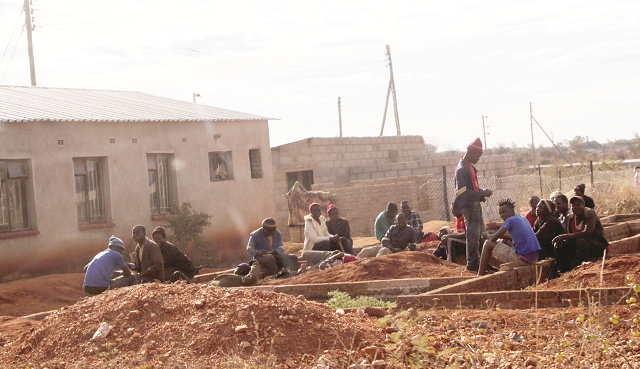Govt drafts incentives, finance package for firms

Dumisani Nsingo, Senior Business Reporter
GOVERNMENT is drafting an incentive package backed by a finance model to steer manufacturing industry growth rate of up to five percent per annum in the next 10 years, Industry and Commerce Minister, Nqobizitha Mangaliso Ndlovu, said yesterday.
The transformation drive will be anchored on adoption of modern technology in which research and innovation will play a key role in production of competitive products for the international market.
Officially opening the Confederation of Zimbabwe Industries (CZI) congress and international investment indaba in Bulawayo, Minister Ndlovu said embracing technology was at the heart of Government’s strategies towards revamping the manufacturing sector.
“Technology upgrade is of utmost importance if Zimbabwe is to keep pace with trends on the international market. To ensure companies produce competitive goods and services that meet international quality standards, Government will offer incentives to stimulate innovation including research and development subsidies and support to public-private research institutions such as the Scientific and Industrial Research Development Centre (SIRDC),” he said.
“This will assist in creating a strong knowledge base and establishing a strong research and innovation network, which is critical for industry.”
Despite its potential, manufacturing sector contribution to Gross Domestic Product (GDP) remains minimal with capacity utilisation hovering below 50 percent in recent years. Poor access to foreign exchange, ageing technology, high production costs and archaic regulations are among the top barriers.
As such, Minister Ndlovu said policy and intervention measures will cover the national industrial development framework, promotion of industrial value chains, financing, competitiveness and business environmental reforms, green industry solutions, local content policy, infrastructure and utilities and incentives to trade. He noted that the industrial sector has continued to face challenges in accessing affordable and long-term finances for retooling and working capital purposes.
“Financial constraints have also been a major obstacle to investment into the industrial sector. The collective efforts of ‘getting Zimbabwe working again’ come with the real challenge faced by businesses with regards to obsolete and outdated equipment and machinery. This requires increased investment in retooling and accessing more modern and newer equipment and technology,” said Minister Ndlovu.
“Government in this regard will facilitate utilisation of financing models that include negotiating credit lines, rolling out initiatives of partnering domestic and foreign investors, joint venture financing and also turning key arrangements among other options.”
The Minister said the manufacturing sector was a key pillar in employment creation, foreign currency generation and technological advancement.
Furthermore, he said, the country had joined the rest of the countries on the continent on the African Agenda 2063 on industrialisation.
“Across the continent there is a clarion call to action and the African Agenda 2063 speaks to the transformation, growth and industrialisation of our economies through beneficiation and value addition of our natural resources. As Zimbabwe we are doing our best to respond to this agenda by anchoring our development blueprint on it and the SADC (Southern African Development Community) Industrialisation Strategy and Roadmap,” he said.
“Agenda 2063 reiterates the development of the African private sector through engagement and creation of strong manufacturing hubs that will see us scale up Inter-Africa Trade.”
The SADC Industrialisation Strategy and Road Map of 2015 has been adopted by Zimbabwe and regional Heads of State and Government. It emphasises harnessing of regional resources for sustainable economic and social development. — @DNsingo.











Comments